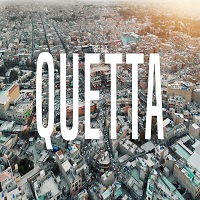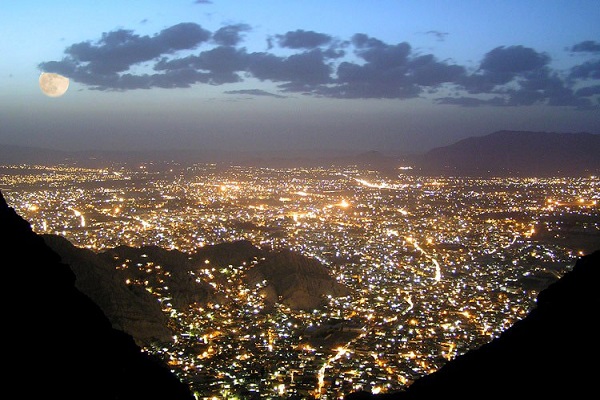Quetta is a district of province Baluchistan, Pakistan. It is located on the border of Afghanistan, near Afghan’s province of Kandahar. The headquarters of the district is Quetta City. The district covers an area of 2,653 square kilometres. The coordinates of the city are 30’10’ to the north and 67’0’ to the east.
The district has fertile land and is famous for agricultural production. The most popular fruits of the region are orchards, grapes, and apples consumed within the country and exported abroad. Almonds are also grown in the region of Hanna Valley.
According to the 1998 census of Pakistan, the district had 7600,000 inhabitants while it was increased to 1,235,000 in 2010. This article contains all the information about the region, including Quetta History.
| Title | Description |
|---|---|
| Information | |
| Location: | Pakistan |
| Name : | Quetta |
| In Urdu : | کوئٹہ |
| City Council: | Government of Punjab |
| Type: | Capital of Balochistan |
| Local Language Name: | Urdu Pushto (Pashto) English |
| Province: | Balochistan |
| Coordinates : | 30°11″N 67°00″E |
| District: | Quetta District |
| Region: | Balochistan |
| Elevation: | 1,680 m (5,510 ft) |
| Website: | www.balochistan.gov.pk |
| Language | |
| Official Language: | Pashto |
| Native Language: | Punjabi |
| Other Languages: | Brahui.Urdu.Punjabi Pashto |
| Government | |
| Government Type: | Municipal Corporation |
| Mayor: | Dr Kalimullah Khan |
| Deputy Mayor: | Younus Baloch |
| Area | |
| Total Area: | 2,656 km2 (1,025 sq mi) |
| Population | |
| Total Population: | 759,941 |
| Time zone | |
| Time zone: | PKT (UTC+5) |
| Codes | |
| Postal code: | 87300 |
| Dialling code: | 81 |
| Vehicle registration: | Three letters beginning with Q and random four numbers |
Table of Contents
Quetta History
Sialkot was the old name of Quetta, and the history of the region goes back to the Ghaznavid Empire when Sultan Mehmood Ghaznavi occupied the area. After the decline of the Ghaznavid Empire, Gurids took hold of the region followed by Herat’s Mongols and rulers.
The district was then occupied by Mughals and ruled the region for many decades. With the rise of Khaljis and Pashtun Baloch, the area of Pishin became the battleground of wars between Baloch and Afghans. In 1751, Baloch and Afghan armies got united to defeat Persian in Iran and Marathas in 1761, in the 3rd battle of Panipat. They remained united and defeated Sikhs in 1765.
In 1879, the region captured by British rulers. They occupied the Fort of Quetta and remained under their control till the treaty between British rulers and Khans. The fort was given to the British rulers on the annual rent of 25,000 Pakistani rupees. They ruled the region till the independence of Pakistan.
Administration
The district is administratively divided into three tehsils and sixty-seven union councils. The names of district tehsils are given below.
- Panjpai
- Zarghoon
- Chiltan
Population
According to 2017 census of Pakistan, the district had a population of 1,001,205 inhabitants.
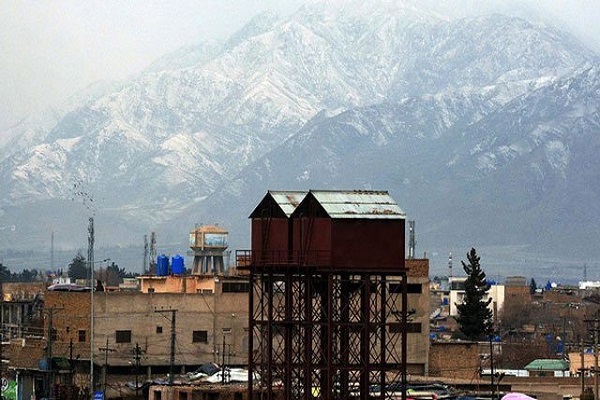
Language
The principal language of the region is Pashtu, spoken by 36 per cent of the entire population. The second most spoken language of the region is Balochi, spoken by 24 per cent of the people while Punjabi is spoken by 14 per cent, Brahui by 15 per cent and Urdu by 11 per cent of the population.
Religion
The primary religion of the region is Islam, followed by 96 per cent of the population. Other religions include Christianity and Hinduism.
Quetta Climate
The district has a cold semi-arid climate. The region’s highest recorded temperature is 43 degrees centigrade while the average temperature varies from 18 to 36 degrees centigrade in summer.
Quetta Postal Code and Area Code
Postal code: 87300
Area Code: 81
Transportation
Roads
The district is linked with the other central regions of Pakistan such as Lahore, Peshawar, Karachi, Rawalpindi, and Islamabad. It also connects the villages and towns of the district through minor roads.
Railways
The railway line of Quetta is considered to the second-largest railway line of Pakistan. It connects the district with Karachi, Peshawar, Lahore, Khanewal and Rawalpindi.
Airport
The International Airport of this city is the largest airport in Pakistan and provides travelling services to all countries through Pakistan International Airlines (PIA).
Agriculture
The region contains a fertile land irrigated from canals and rain. Wheat and rice are the major crops produced in the region while the fruit contains Peach, Grapes, Orchard and Apples, pistachios, almonds, walnuts and apricots.
The region is famous for producing its 18 different varieties of apple consumed in the country and exported abroad. Significant vegetables grown in the region are potato and chilli.
Industry
It is now merging as an industrial zone having many different industries including textile mills, flour mills, trade and e-commerce sectors and steel mills.
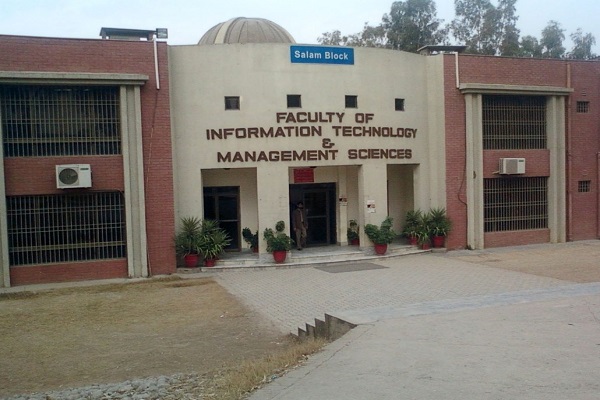
Education
It is home of the educational institution for Baloch people. Some of the notable institutions of the district are given below.
- Bolan Medical College
- University of Baluchistan
- Sardar Bahadur Khan Women University
- Baluchistan University of Information and Technology, Engineering and Management Sciences
- Baluchistan Agricultural College
- Command and Staff CollegeScience College
- Tameer-e-Nau Public College
- University Law College (ULC)
- St Francis Grammar School
- OPF Public School
- Quetta Institute of Medical Sciences
Sports
The people of the district play cricket and football widely. There are many sports clubs and stadiums in the region. The cricket team of Quetta Gladiators, always compete in Pakistan Super League (PSL).
Boxing is another popular game, and the professional boxer Mohammad Waseem also belongs to Quetta. Hockey is another game played in the region and has two National Hockey Team players, Shakeel Abbasi and Zeeshan Ashraf.
Tourism
There are many historical and interesting places to visit. Some of them are given below.
- Quaid-e-Azam Residency
- Pishin Valley
- Museum of Quetta
- Ziarat
- Hanna Lake
- The Urak Valley
- Kan Mehtarzai railway station
- Quetta Bazaar
- Hazarganji Chiltan National Park
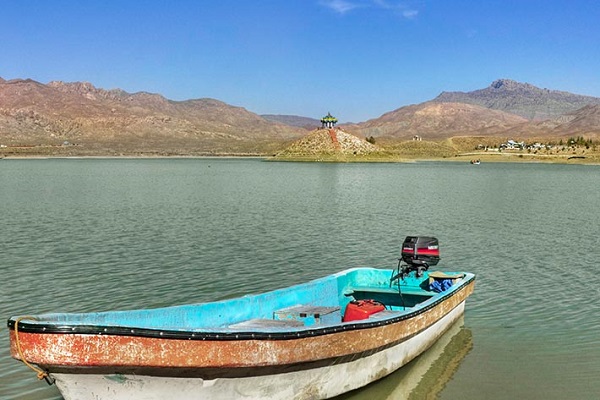
Notable People
- Javaid Iqbal, former chief justice (Supreme Court)
- Mehmood Khan Achakzai
- Iftikhar Muhammad Chaudhry, chief justice (Supreme Court)
- Saira Batool Hazara, Air Force pilot
- Yazdan Khan
- Sharbat Ali Changezi Retd officer Pakistan Air Force
- Abid Ali
- Abdul Qadir Baloch Retd Pakistan Army officer
- Musa Khan
- Zeba Bakhtiar
- Samad Ali Changezi
- Ayub Khoso Actor
- Agha Sadiq
- Ali Baba Taj
- Agha Sadiq
- Alison Plowden
- Mohsin Changezi
- Russi Karanjia
- Muneer Ahmed Badini
- Siddiq Baloch
- Zeeshan Ashraf, field-hockey player
- Mohammad Umar, cricketer
- Shakeel Abbasi, field-hockey player
- Zafar Mairaj
